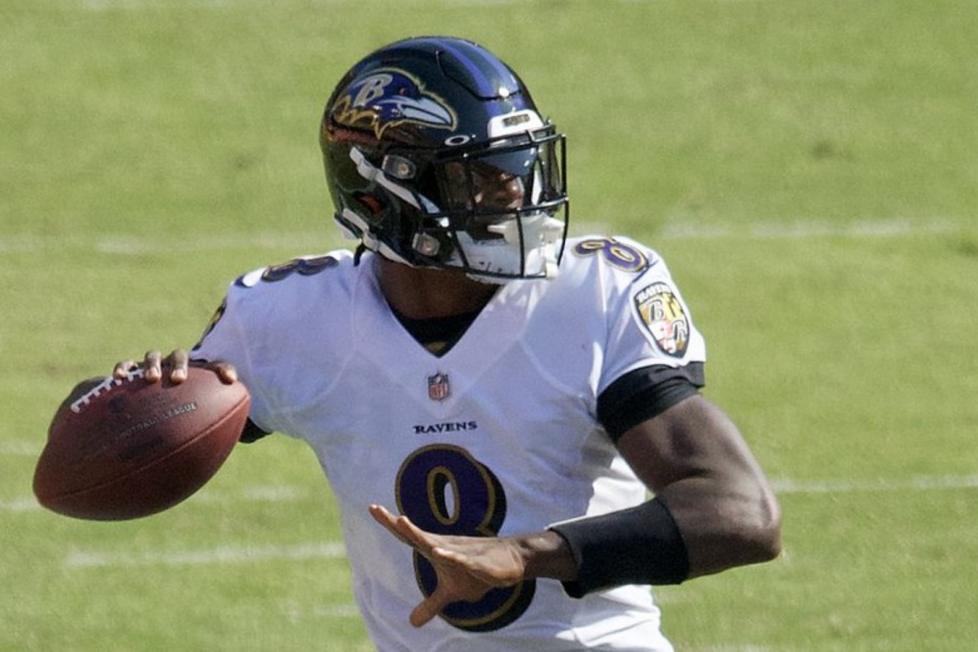Racial bias in NFL draft: Black quarterbacks undervalued, investigation reveals

By: Stacy M. Brown/ NNPA Newswire
An extensive investigation by the West Coast news organization SFGate has shed light on a troubling trend in the National Football League (NFL).
From 2010 to 2022, NFL teams consistently underestimated the potential of Black quarterbacks during the draft selection process. The investigation, which analyzed draft data and player performance, exposed a pattern of racial bias that may have profound implications for the league.
“The NFL presents itself as America’s most cutthroat meritocracy. And yet evidence continues to show that teams screw up the single most important decision they make due to racial bias,” Journalist Marc Delucchi wrote.
The investigation’s findings are stark and unmistakable, Delucchi affirmed.
According to SFGate, the statistics paint a damning picture: Black quarterbacks drafted during this period had a staggering four times better chance of achieving at least one Pro Bowl selection than their non-Black counterparts.
[SCROLL BREAK!!! Bayou Beat News can also be found in PRINT at a store near you. Click the link below to check out our E-Edition!]
At every draft stage, Black quarterbacks consistently outperformed their non-Black counterparts. Astonishingly, the data revealed that an average Black quarterback was more likely to secure at least one Pro Bowl selection than an average non-Black quarterback selected much earlier in the draft, approximately 66 picks or roughly two rounds earlier.
These findings strongly suggest that racial bias has influenced NFL teams’ decision-making processes during the draft, ultimately leading them to favor less capable quarterbacks if they are not Black. In the words of the investigators, “Black quarterbacks are penalized in the draft solely for being Black, our analysis suggests, and it’s a penalty that reverberates years into their professional careers.” The NNPA reached out to both the NFL and the NFL Players Association, but neither entity responded to comment requests.
It is essential to emphasize that these results do not reflect the players’ abilities or potential but point to shortcomings within the scouting departments and executive decision-makers responsible for the draft process, SFGate asserted. “Contrary to some persistent claims, no evidence suggests that an individual’s race has any bearing on their athletic prowess,” the outlet stated. Instead, the findings underscore longstanding allegations that Black quarterbacks are held to double standards, leading NFL teams to undervalue them during the draft.
For decades, the NFL has featured a significant representation of Black players, though this proportion has slightly declined in recent years. However, the discrepancy becomes evident when examining the number of Black quarterbacks drafted from 2010 to 2022, which accounts for less than a quarter of all selections.
“Black quarterbacks probably aren’t getting in the pool unless they’re amazing,” said David Berri, a respected economics professor at Southern Utah University who has extensively studied racial dynamics in the NFL. “White quarterbacks are getting in the pool when they’re not amazing. That’s why you see this disparity.”
Even though NFL teams have allocated a significant number of draft picks to non-Black quarterbacks in later rounds, the last non-Black quarterbacks selected after the 102nd pick to reach a Pro Bowl were Derek Anderson and Matt Cassel back in 2005. In contrast, several Black quarterbacks, including Dak Prescott (135th), Tyrod Taylor (180th), and Tyler Huntley (undrafted free agent), have all earned at least one Pro Bowl selection despite their lower draft positions.
This trend is observable throughout draft history, with remarkable talents like Patrick Mahomes falling to the 10th pick and Lamar Jackson going 32nd overall, despite one ex-NFL GM suggesting he should play wide receiver. Russell Wilson, who has become an All-Pro, wasn’t drafted until the third round.
The report found that the consequences of this bias are not limited to missed opportunities but also extend to compensation. The NFL operates on a tiered pay scale based on draft position, making players more money the higher they are selected. This also leads teams to invest more in developing players chosen early in the draft and retaining them for extended periods.
Lamar Jackson’s contract serves as a poignant example of this disparity. Selected with the final pick of the first round in 2018, Jackson, who is Black, received a four-year contract with approximately $9.5 million in guarantees. In contrast, Baker Mayfield, the first overall pick in the same draft, who is white, signed a four-year deal guaranteeing him a staggering $32.7 million.
